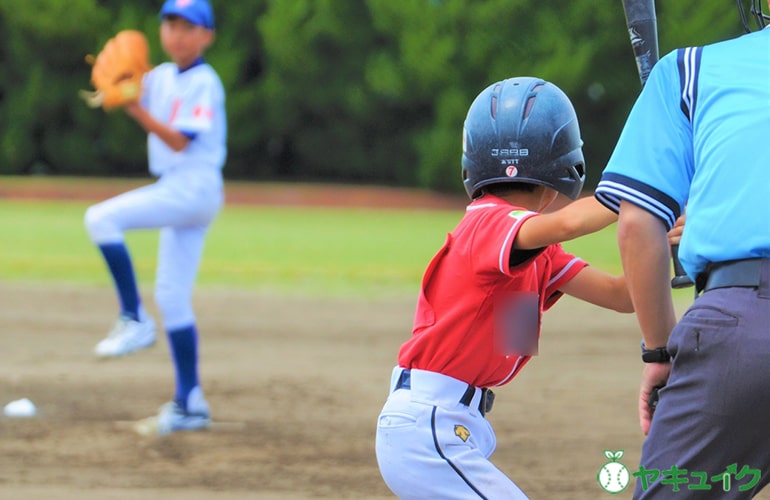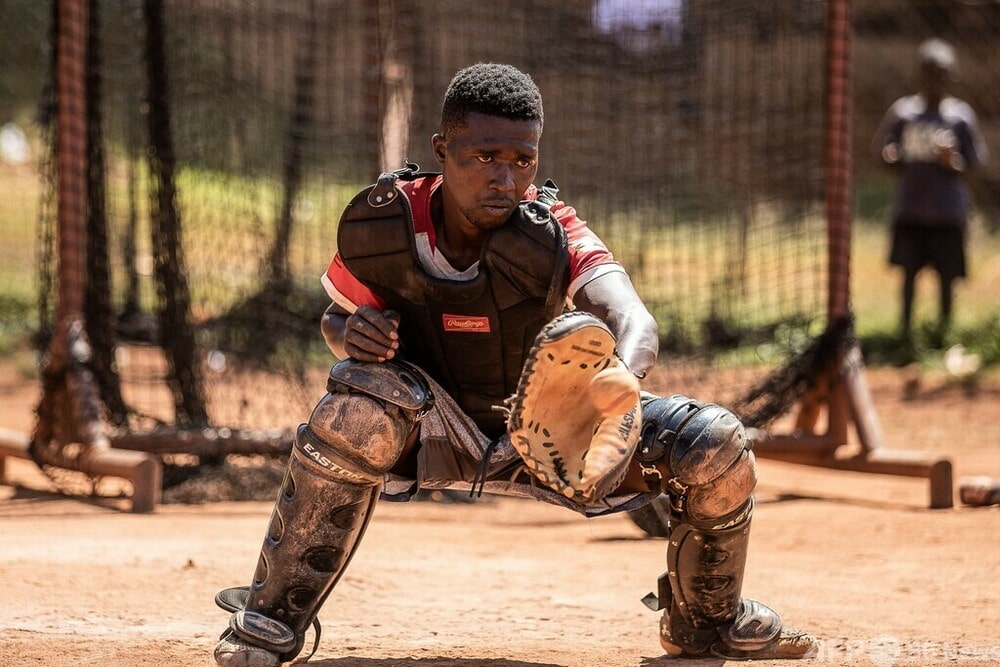
Baseball games are one of the sports that are heavily influenced by the weather.
In particular, in the event of rain, cancellation of the match will be considered as it could have a significant impact on the progress of the match and the safety of the players.
The decision to cancel a game due to rain is made based on a variety of factors, including changing weather conditions and ground conditions.
In this article, we will explain in detail when a decision is made to cancel a baseball game due to rain, the criteria for making that decision, and what measures are taken.
There are differences between professional baseball and amateur baseball in terms of rules and procedures for rain cancellations, so we will also touch on the differences between the two.
We will also look at how games are handled when they are cancelled due to rain from various perspectives, such as the criteria used before and during the game, the decision-making process, and how information is provided to fans.
First, let’s take a closer look at the basic rules for rain cancellations.
目次
Basic rules for rain cancellations
Baseball games may be canceled due to weather. Rain cancellations in particular are decided carefully, as they can have a significant impact on the progress of the game and the safety of the players.
Rainout rules and procedures can differ between professional and amateur baseball, and it’s important to understand the differences between them.
Here we will explain in detail the basic rules regarding rain cancellations and the differences between professional and amateur baseball.
What is the definition of a rainout?
A rainout occurs when a baseball game is cancelled due to rain or bad weather.
Specifically, the event will be cancelled due to rain in the following circumstances:
-
Heavy rain or thunder : If heavy rain or thunder is expected, the match will be canceled to ensure the safety of players and spectators. Lightning is particularly dangerous, so the decision to cancel is often made early on.
-
Deteriorating ground conditions : Rain can make the ground muddy and slippery, increasing the risk of injury to players. In addition, puddles can affect the ball’s roll and the quality of play, so cancellations will be considered.
-
Circumstances that make it difficult to proceed with the match : If rain continues to fall and it becomes difficult to proceed with the match, the match will be cancelled. In particular, if the rain is so heavy that visibility is poor, the match will be cancelled with safety as the priority, as this will affect the judges’ and players’ judgment.
The decision to cancel a game due to rain is generally made by the umpires before or during the game. If the decision is made before the game starts, teams and spectators are usually notified early.
The difference between professional and amateur baseball
There are some differences between professional and amateur baseball in rules and procedures for rainouts.
Understanding the difference between the two will help you respond smoothly when a match is canceled.
-
Professional baseball :
- Umpire’s decision : In professional baseball, the umpires check the ground conditions before the start of the game and decide whether to cancel the game due to rain. Also, if it starts to rain during the game, the umpires will temporarily suspend the game, observe the situation, and make a decision to cancel the game.
- Domed stadiums : Many professional baseball games are played in domed stadiums, and games are rarely cancelled due to rain, but rain cancellations may apply to games played at outdoor stadiums.
- Set up replacement games : In professional baseball, if a game is cancelled due to rain, a backup schedule is set and the game is usually rescheduled to a different date, which helps to avoid major disruptions to the season schedule.
-
Amateur Baseball :
- Tournament organizer’s decision : In amateur baseball, the decision to cancel a game due to rain is often made by the tournament organizer. The organizer will take into consideration the weather forecast and the condition of the field, and will make the decision with safety as the top priority.
- Differences in facilities : In amateur baseball, domed stadiums are rarely used and outdoor stadiums are the norm, meaning there is a higher risk of games being cancelled due to rain.
- Difficulty in finding replacement games : In amateur baseball, schedule flexibility is limited, so it can be difficult to find replacement games when a game is cancelled due to rain. In particular, in tournaments that are held in a short period of time, it can be difficult to secure backup dates, so the game itself may be cancelled.
As such, the rules and procedures regarding rain cancellations differ between professional and amateur baseball.
Next, let’s take a closer look at the pre-match criteria.

Pre-match criteria
Whether or not a baseball game will be rained out is determined before the game, taking into account many factors.
Weather forecasts, advance research, stadium facilities and countermeasures are important criteria for making decisions. Here we will explain in detail the criteria for making decisions before a match.
Weather forecast and advance research
The weather forecast is the most basic and important source of information when deciding whether to cancel a game due to rain before the game.
Weather forecasts are checked several days before a match, with a detailed forecast especially important for the day of the match.
Below are some key points regarding weather forecasting and advance research.
-
Check the detailed weather forecast :
- Before a match, we check detailed weather forecasts provided by the Japan Meteorological Agency and private weather services. If rain is forecast, we look at details such as the amount of precipitation, time of day and duration to make a judgment.
- The forecast is particularly important around the start of the match, and if rain is expected, its intensity and duration will also be taken into account.
-
See multiple forecasts :
- By referring to multiple weather information sources, rather than just one forecast, you can make more accurate decisions. You can also check whether the forecasts from each source are consistent, and make decisions based on consistent information.
-
preliminary survey :
- It is also important to study actual weather conditions near the stadium the day before and on the day of the game, which involves gathering real-time information using on-site observational data and webcams.
- Additionally, by referring to past data, you can understand weather patterns in specific regions and seasons and use this information to make decisions.
-
Establishing contact :
- We will establish a system of communication with the team and operational staff and quickly share decisions based on the weather forecast, which will enable us to take appropriate measures quickly.
Stadium facilities and countermeasures
The stadium’s facilities and countermeasures are also important factors in deciding whether to cancel a game due to rain before the game.
The deciding factors are whether the stadium’s facilities are in good condition and whether there are plans in place to deal with rainy weather.
-
Ground drainage :
- In stadiums with good drainage systems, the water drains away quickly even if it rains, and the game may be able to continue. The presence or absence of drainage systems and their performance are important points in determining whether a game can be played or not.
- Professional baseball stadiums in particular often have the latest drainage systems installed, and are well-equipped to respond quickly even in rainy weather.
-
Groundskeeper capabilities :
- Rapid response times for groundskeepers are also important: if it starts to rain, groundskeepers are expected to lay down tarps to protect the field and be ready for play to resume when the rain stops.
- Stadiums with professional groundskeepers are more likely to be able to handle rainy weather smoothly and avoid canceling games.
-
Dome Stadium Use :
- Domed stadiums have little risk of rain cancellations, so especially important games or games that are expected to have large crowds may be prioritized for playing in domed stadiums.
- The availability and availability of a domed stadium also influences the decision to cancel a game due to rain before the game.
-
Spectator accommodations :
- How to respond to spectators in the event of a rainy event is also important. Consideration must be given to spectators, including ticket refunds, announcements of rescheduled matches, and the impact on transportation.
- It is important to prepare the means of providing information to spectators in advance (social media, official websites, etc.) and have a system in place that allows for quick response.
Taking all these factors into consideration, a decision to cancel a match due to rain will be made before the match begins.
Next, let’s take a closer look at the criteria used during a match.

In-game decision-making criteria
If it starts raining during a game, the criteria for deciding to cancel the game will be based primarily on the umpire’s judgment and ground condition checkpoints.
Making quick and appropriate decisions during a match helps ensure the safety of players and spectators and maintains the fairness of the match.
Here we will explain in detail the criteria used during the match.
Judging criteria
The decision to cancel a game due to rain is primarily made by the umpire.
The umpire will assess the playing conditions and changes in the weather and decide whether to continue, suspend, or cancel the game.
Below are the main criteria that umpires will use to decide whether to cancel a game due to rain:
-
Visibility :
- When heavy rain reduces visibility and players and umpires cannot see, it becomes difficult to proceed with the game. When visibility is particularly poor for batters and pitchers, the quality of play declines and there is a danger, so the umpire will consider suspending or canceling the game.
-
Play safely :
- When rain makes the ground slippery, players are at higher risk of injury. In particular, if it interferes with base running or field movement, umpires will prioritize the safety of the players and halt the game. A slippery ground also makes the ground unstable, affecting the handling of batted balls and the movement of runners.
-
Fairness of play :
- A stoppage of play may also be considered if rain affects the fairness of play. For example, if the mound or batter’s box is flooded and causes problems for pitching or batting, the fairness of the game will be compromised and the umpire will make the appropriate decision.
-
Weather duration :
- If it is only a temporary light rain, the match may continue, but if heavy rain is expected to continue for a long period of time, the match may be canceled early. We check the weather forecast and the actual precipitation conditions to determine whether the rain is likely to stop.
-
Jury communications :
- Referees communicate with each other during the game and share their overall decisions. The referee makes the final decision while checking the situation on the entire field, not just the main referee. By taking into account the opinions of the entire refereeing team, more appropriate decisions can be made.
Ground condition checkpoints
When deciding whether to cancel a game due to rain, checking the ground conditions is an important factor.
They will assess how the ground conditions will affect play and decide whether or not to continue the match.
Below are some checkpoints for ground conditions.
-
Mound and batter’s box :
- When the mound or batter’s box becomes flooded and muddy, it can affect pitching and batting. In particular, if the pitcher becomes slippery, he or she may lose control and throw more dangerous pitches. Similarly, the batter’s box can make the batter’s feet unstable, which can affect the batting motion.
-
Base Running Lines :
- The lines between the bases become slippery, increasing the risk of runners falling while running. In particular, running from first base to second base and from second base to third base becomes dangerous. The umpire checks the condition of these lines and decides whether it is safe to play.
-
Infield and outfield :
- When the infield or outfield is flooded, the ball rolls irregularly, making it more difficult for the defense to play. In particular, when the grass on the outfield is flooded, it has a significant impact on the handling of batted balls and throwing. The umpire checks these conditions and evaluates whether they are interfering with the progress of the game.
-
Drainage system effects :
- It is also important to check whether the ground’s drainage system is functioning effectively. If the drainage is smooth and the ground dries quickly, the match can resume, but if the drainage is insufficient, it will be difficult to continue the match.
-
Groundskeeper Response :
- Another factor in deciding whether or not the groundskeeper can act quickly is whether or not the match can resume if the groundkeeper has the equipment and manpower to protect the ground by laying down tarpaulins and drain the water. Conversely, if the groundkeeper’s response is insufficient, the match may be cancelled.
Based on these criteria, the umpire will decide whether to cancel the game due to rain.
Next, let’s take a closer look at the rain cancellation decision-making process.

Rain Cancellation Decision-Making Process
The decision-making process for rainouts is important to ensure the safety and fairness of the game.
This process includes close communication between teams and referees, as well as providing fans with fast and accurate information.
Having a good process in place will ensure a smooth experience for all involved.
Here we explain in detail the decision-making process for rain cancellations.
Communication between teams and referees
Effective communication between teams and the umpires is essential when deciding to cancel a game due to rain.
This will allow appropriate decisions to be made regarding the progress or abandonment of a match.
-
Pre-match meeting :
- Before the start of the match, the referees and the team managers and coaches meet to share information about the weather. In this meeting, they discuss the possibility of canceling the match due to rain and what measures to take based on the weather forecast and past weather data.
- In particular, we will check the start time of the match and ground conditions and be prepared to make early decisions.
-
Communication during the match :
- If the weather worsens during a match, it is important to establish a quick communication system between the umpires and the teams. The umpires will monitor the progress of the match and ground conditions, and keep the teams updated.
- Managers and coaches must prioritize player safety and work with the referees to take appropriate action, especially when the ground becomes slippery or visibility is poor, making quick decisions about whether to suspend or abandon the match.
-
Sharing judgement :
- If the umpires decide to cancel a match due to rain, they will promptly inform the teams of their decision, along with a detailed explanation of the specific reasons and measures to be taken after the match is cancelled.
- Based on this information, the team will issue instructions to players and staff and take measures to avoid confusion. It is particularly important to prepare operational aspects such as dealing with spectators and cleaning up after the event.
How to provide information to fans
Once the decision is made to cancel a game due to rain, it is important to provide fans with quick and accurate information.
This will help to minimize confusion and dissatisfaction among fans.
-
Official website and social media :
- Once the decision is made to cancel a match, we will immediately announce it via our official website and social media channels (Twitter, Facebook, Instagram, etc.) This will allow the information to be quickly shared with fans heading to the stadium and those waiting at home.
- We will provide you with detailed information you need, such as the reasons for cancellation, information about rescheduled matches, and how to get a ticket refund.
-
Announcements in the stadium :
- Fans inside the stadium will be informed of the cancellation decision via public address announcements, so that fans on-site can take appropriate action.
- In the announcement, the reason for the cancellation and future plans will be explained and fans’ understanding will be sought. It is also important to have stadium staff available to answer any questions from fans.
-
Using email notifications and apps :
- Fans who have purchased tickets in advance will be notified of the cancellation directly via email notification and our official app, ensuring all ticket-holders are informed.
- The email or app will include detailed information such as the reason for the cancellation, the date and time of the rescheduled match, and how to handle tickets.
-
Media coverage :
- The decision to cancel will be widely announced through local media, including TV and radio stations and newspapers, making it easier for information to reach a wider fan base.
- In particular, when a match is important or attracts a lot of attention, utilizing the media makes it possible to disseminate information quickly.
These processes ensure that rain cancellation decisions are made smoothly and appropriately managed for fans and all involved parties.
Next, let’s take a closer look at what to do if an event is cancelled due to rain.

Measures to be taken in the event of rain cancellation
If a decision is made to cancel an event due to rain, prompt and appropriate action is required.
In particular, ticket refunds, rescheduling matches, and managing player condition are important.
By taking these measures seriously, we can minimize dissatisfaction among fans and players and ensure smooth operations.
Here we will explain in detail what to do if the event is cancelled due to rain.
Ticket refunds and rescheduled matches
If a game is cancelled due to rain, it is important to provide fans with appropriate ticket refunds and information about rescheduled games.
This will help reduce fan frustration and maintain trust.
-
How to get a refund for your ticket :
- We will promptly provide information regarding ticket refunds via our official website, social media, and email notifications. Refund methods include online refunds and in-person refunds.
- In order to process a refund, we need to verify the purchaser and the ticket. In particular, for online tickets, we will process the refund based on the purchaser’s account information.
- When refunds are made at the counter, dedicated counters will be set up and staff will be deployed to ensure smooth processing. Especially at major matches, many fans will be requesting refunds, so a quick and efficient response is required.
-
Rescheduled match information :
- If a rescheduled match is decided for a match that is cancelled due to rain, we will provide that information promptly. Details of the rescheduled match date, time and venue will be announced on our official website, social media and by email.
- For rescheduled matches, tickets already purchased may remain valid or new tickets may be issued. Fans will be given clear instructions on how to handle their tickets.
- If a rescheduled match is not possible (due to scheduling conflicts or facility availability), alternative matches or other measures will be considered and notified to fans.
-
Offering special offers and discounts :
- It is also effective to offer special benefits or discounts to fans who were unable to attend the game due to rainout. For example, offering discounts on tickets for the next game or discount coupons for merchandise can increase fan satisfaction.
- Details of the benefits and discounts will also be provided via the official website, social media, and email notifications to provide greater support to fans.
Managing players’ condition
If the event is cancelled due to rain, managing the players’ condition will also be an important issue.
Proper management will ensure that players are in top condition for their next match.
-
Training after match cancellation :
- It is important that athletes are able to continue their appropriate training after a rainout, particularly by using indoor facilities and by carrying out stretching and strength training.
- Trainers and coaches will monitor the condition of each player and adjust training programs as necessary, minimizing the impact of game cancellations.
-
Recovery and rest :
- It is also important to allow players to have sufficient rest after a rainout, to allow them time to recover from the fatigue of the match.
- We maintain athletes’ performance by providing thorough recovery care, including massage, icing, and nutritional supplementation.
-
Preparation for the next match :
- We will review the schedule after the rain cancellation and prepare for the next match. Especially when the match schedule is tight, we will make the health management of the players our number one priority.
- The coaching staff will review the tactics and strategies for the next match and share them with the players, so that they can prepare for the next match without being affected by the cancellation.
-
Mental care :
- Rain cancellations can affect the motivation of players. Therefore, mental care is also important. Coaches and mental trainers communicate with players and support them to maintain their motivation.
- It is also effective to boost morale throughout the team through team meetings and leadership activities, so players can approach the next game with a positive attitude.
Taking these measures will help minimize the impact of rainouts and increase the satisfaction of fans and players.
Next, let’s take a closer look at how to prepare for rain cancellations.

Preparations for rain cancellations
Advance planning and preparation are essential to prepare for rain cancellations.
By setting and managing appropriate backup schedules and having rainy weather training plans, you can respond smoothly even if a match is canceled.
Here we will explain in detail the specific preparations you should make in case your event is cancelled due to rain.
Setting and managing backup schedules
In order to prepare for cancellations due to rain, it is important to set and manage a backup schedule.
This will allow for a quick rescheduling of a match if the match is cancelled.
-
Preliminary schedule before the start of the season :
- Before the season begins, each team sets a back-up schedule, which is an alternate date set aside in case a game is rained out.
- The reserve schedule is set taking into account the schedule of the entire league, adjusting it to rest days between matches, away dates, etc. In particular, priority is often given to days where attendance is expected, such as weekends and holidays.
-
Flexible schedule management :
- During the season, we will flexibly manage the backup schedule depending on the weather and game progress. If a game is cancelled due to rain, we will promptly apply the backup schedule and notify the relevant parties.
- If there are any changes to the schedule, we share the information with players and staff as soon as possible and make adjustments. In particular, in the case of away games, we must also consider arranging transportation and accommodation.
-
Setting multiple backup dates :
- Having multiple backup dates rather than just one allows for greater flexibility, especially towards the end of the season or when there are a number of important matches in a row.
- Setting multiple backup dates will allow you to respond to unexpected changes in weather or multiple cancellations.
-
League Collaboration :
- Teams will work with the League to set and manage their backup schedules, and the League will coordinate the overall schedule and officially approve the backup schedules.
- If changes or additions to the backup schedule are necessary, we will consult with the league and take appropriate action.
Rainy weather training plan
It is also important to have a rain-weather training plan in place so that athletes can continue to train properly in the event of a rain cancellation.
This allows players to maintain their condition even if a match is canceled and be fully prepared for the next match.
-
Securing indoor facilities :
- Secure indoor facilities for training when it rains. Indoor batting cages, gyms, and indoor training areas allow for effective training even when it rains.
- We manage the usage schedule of indoor facilities and make preparations to quickly move athletes if a game is canceled due to rain.
-
Creating a rainy weather training menu :
- Prepare a training menu in advance to be carried out in case of rain. This includes batting practice, pitching practice, fielding practice, physical training, etc.
- Training menus are customized according to the needs of each individual athlete to maintain and improve their performance.
-
Physical and mental care :
- In order to minimize the impact of rainy weather cancellations, we will take care of the players both physically and mentally. We will incorporate massage, stretching, mental training, etc. to keep the players in good condition.
- In particular, we will provide support to reduce the stress and anxiety caused by cancelled matches.
-
Team Building Activities :
- If the event is cancelled due to rain, team-building activities can help strengthen team bonds. These can include meetings, discussions, and leadership training.
- The entire team will review their goals and prepare together for the next match.
-
Flexible training plans :
- Training plans are designed to be flexible and can be adapted to weather and match schedules, and in particular when consecutive matches are cancelled, training content and intensity can be adjusted to manage player fatigue.
- The coaching staff keeps a constant eye on the players’ situations and provides optimal training plans.
By making these preparations, we will be able to be fully prepared in case the event is canceled due to rain, and will be able to respond smoothly even if the game is canceled.
Next, let’s take a closer look at the history of rain cancellations and some notable examples.

History of rain cancellations and famous cases
Rainouts at baseball games have had many significant consequences throughout the game’s history.
Rain cancellations, especially during important games or seasons, can have a big impact on teams, players, and fans.
Here we will take a closer look at some of the major past cases of rain cancellations, as well as the impact and lessons learned from them.
-
1995 World Series :
- Game 3 of the 1995 World Series was between the Atlanta Braves and the Cleveland Indians. The game was canceled due to heavy rain, which affected the schedule of the series. The cancellation of the game caused changes in team preparations and strategies, but the Braves ultimately won the series.
-
Game 5 of the 2008 World Series :
- Game 5 of the 2008 World Series between the Philadelphia Phillies and the Tampa Bay Rays was stopped midway through the game due to heavy rain. It was the first game in World Series history to be stopped and took more than 48 hours to resume. The stoppages and restarts affected the rhythm of the players, but the Phillies ultimately won and took the series.
-
2003 National League Championship Series (NLCS) :
- Game 6 of the 2003 NLCS between the Chicago Cubs and the Florida Marlins was canceled due to rain. This cancellation had a major impact on the course of the series, hurting the Cubs’ momentum. The Marlins eventually came back and advanced to the World Series.
-
Giants vs Cardinals in 2012 :
- In the 2012 National League Championship Series, Game 7 between the San Francisco Giants and the St. Louis Cardinals was temporarily halted due to heavy rain. The game resumed and the Giants won, clinching a spot in the World Series. The interruption affected the course of the game and the Giants’ strategy paid off.
The impact of the rain cancellation and lessons learned
-
Player Conditioning :
- Rain cancellations have a big impact on the condition of players. In particular, if consecutive games are canceled, players’ rhythm is disrupted and it becomes difficult to maintain their condition. This makes it important to flexibly adjust training plans and take care of players’ mental health.
-
Team strategy and preparation :
- Rainouts can have a big impact on a team’s strategy and preparation. For example, pitcher rotations and player usage may need to be changed. For this reason, teams need to be flexible and prepare multiple strategies in anticipation of rainouts.
-
Match Scheduling :
- Rainouts can force games to be rescheduled, which can impact teams and the league as a whole, especially late in the season and during the playoffs. This underscores the importance of backup schedules and schedule management.
-
Fan response and information :
- Another important lesson is how to respond to fans when a game is cancelled due to rain. When the decision to cancel is made, it is necessary to provide prompt and accurate information to minimize confusion among fans. In addition, by properly handling ticket refunds and informing fans about rescheduled games, it is possible to maintain the trust of fans.
-
Long-term infrastructure development :
- From a long-term perspective, it is important to develop infrastructure to reduce rain-related cancellations. For example, improving drainage facilities and building domed stadiums will make it possible to create an environment that is less susceptible to the effects of weather.
-
Communication is important :
- In the event of a rainout, effective communication within and outside the team is important. Strengthening cooperation between players, staff, fans, and media and sharing information will enable a smooth response.
These cases and lessons learned reaffirm the importance of preparing for and responding to rain cancellations.




